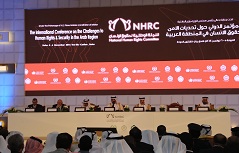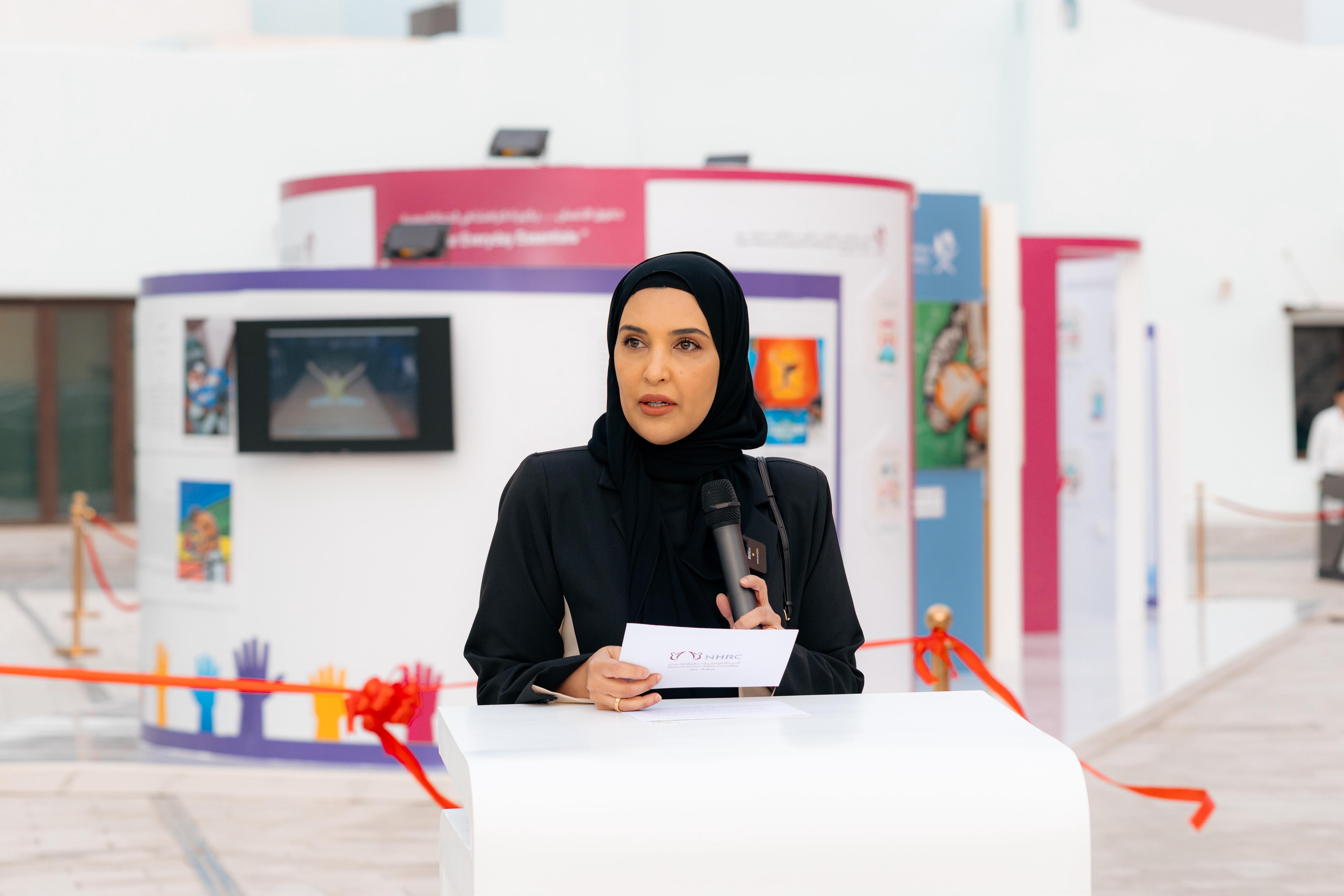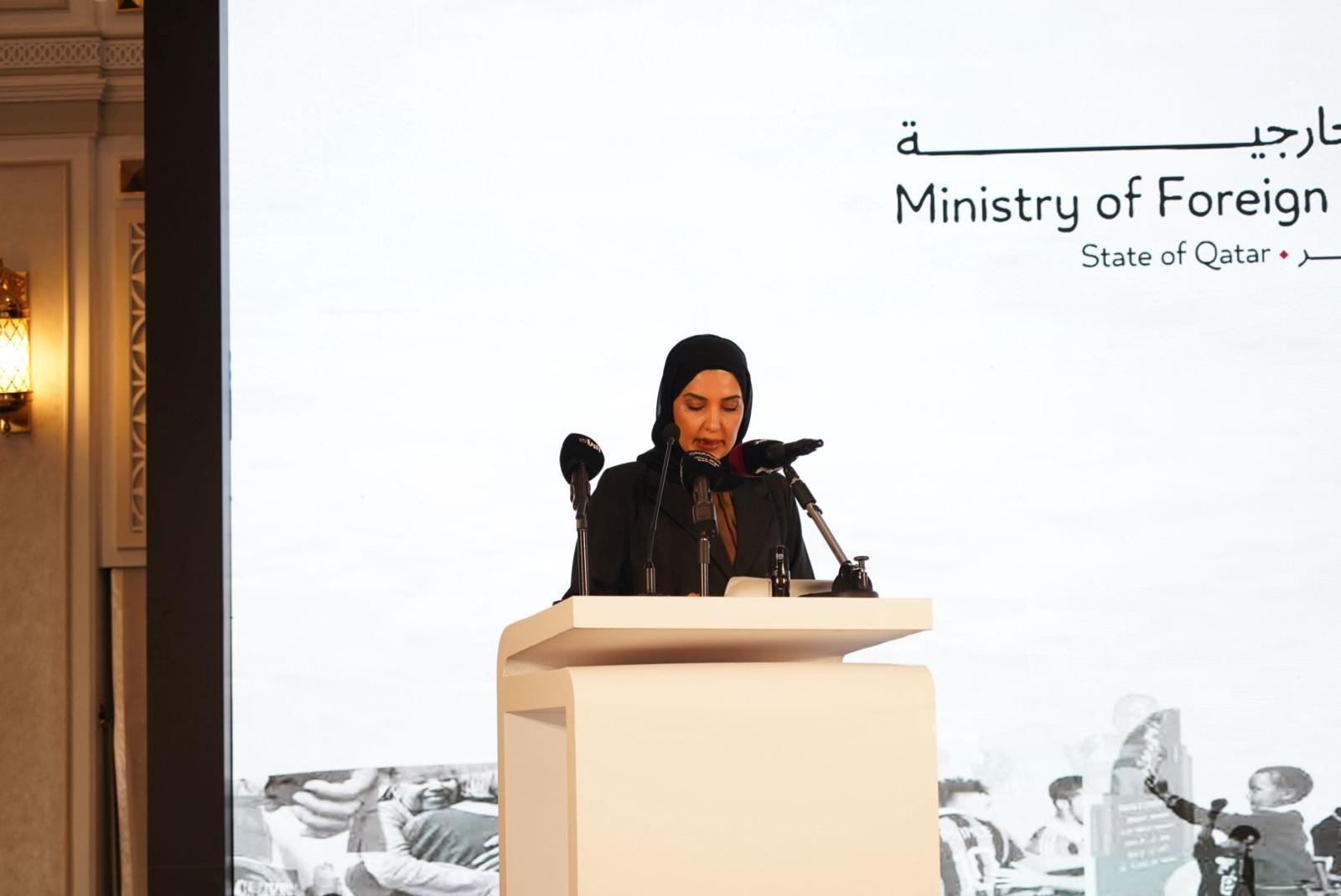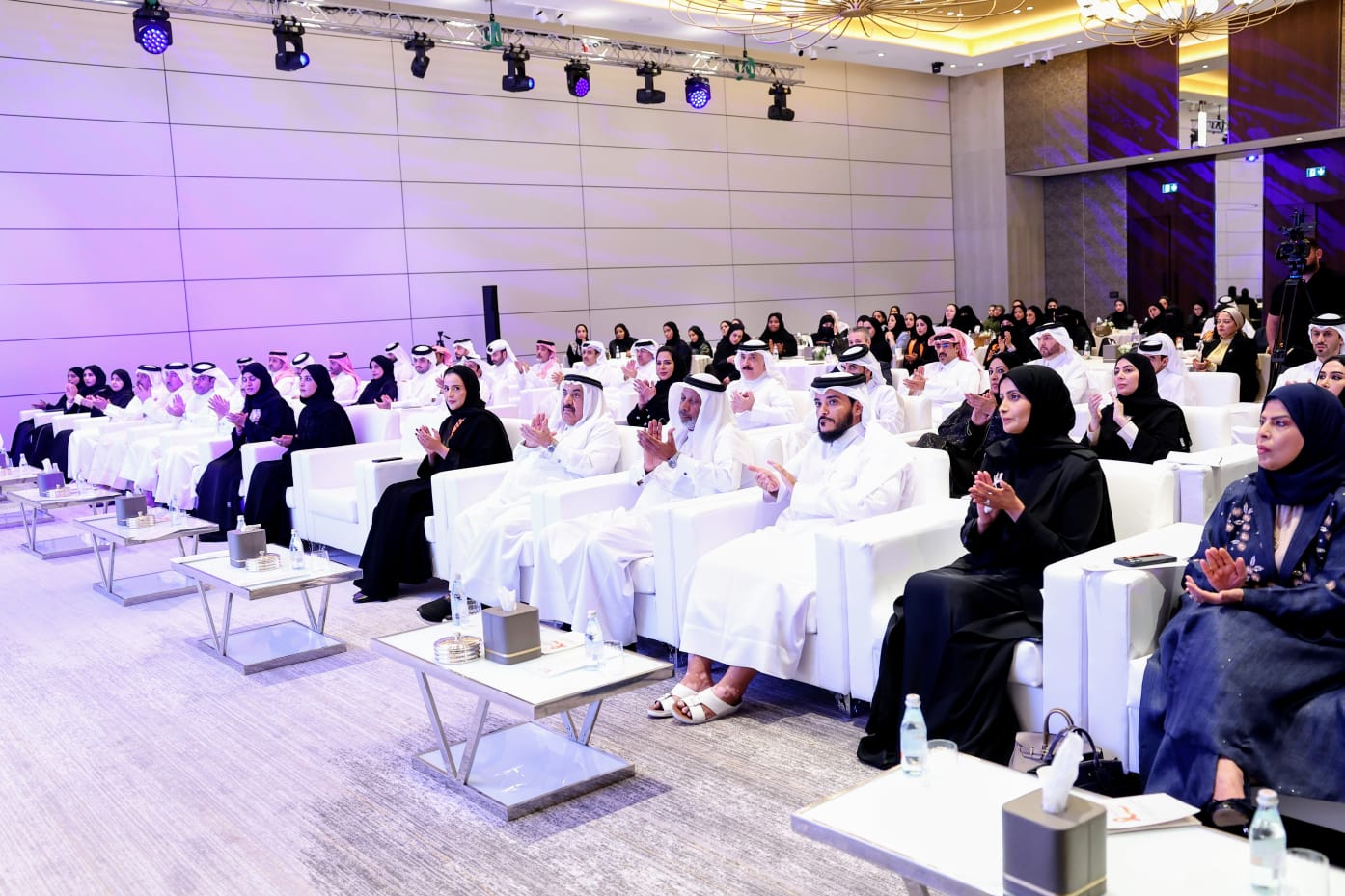الرجوع الى الأخبار
HE Prime Minister and Interior Minister opened the international conference on challenges to security and human rights in the Arab region
Dr. Al Marri: We establish an effective partnership between security institutions and civil society
High Commissioner for Human Rights: We extend thanks to the State of Qatar for its efforts to serve the humanitarian issues in the Arab region
Assistant Secretary-General of the League of Arab States: the conference expresses the sincere desire to protect human rights
Koman: The conference is an opportunity to build bridges of cooperation and coordination between security institutions and human rights organizations
Zayani: Qatar to host this conference emphasizes the importance of promoting the culture of human rights at the local, regional and international levels
Mohammed Fayek: Security and Human Rights Conference in Doha comes at a time the Arab world is exposed to significant risks
HE Prime Minister and Interior Minister Sheikh Abdullah bin Nasser bin Khalifa Al-Thani opened the international conference on challenges to security and human rights in the Arab region, which is organized by Qatar's National Human Rights Committee (NHRC) along with a number of partners.
Over 400 participants took part in the two-day Conference including some Arab interior and justice ministers, representatives of international and Arab human rights organizations, representatives of a group of security institutions and research centers working in the field of security and human rights, in addition to a wide participation of government entities and civil society groups.
GCC Secretary General Abdullatif Al Zayani attended the opening session along with the Arab League's assistant secretary general and legal affairs chief Wagih Hanafi, Arab Parliament Speaker Ahmed Mohammed Al Jarwan, and Arab Network for National Human Rights Institutions Chairman Mohamed Fayek.
Addressing the opening session, NHRC Chairman Dr. Ali bin Samikh Al Marri thanked HE the prime minister and interior minister for supporting the conference.
He underlined the importance of discussing the impact of security challenges on human rights and how to promote these rights without jeopardizing security of Arab countries while ensuring that national security isn't used as a pretext for violating human rights.
Al Marri stated that what the Arab world went through during the past few years, of painful developments, and the past events on September 11, 2001 have been associated with terrorism and combating terrorism. The international community's wide agreement on the need to fight terrorism makes it important to look for the impact of the security challenges on human rights and how we can strengthen these rights without affecting the security of our countries, and at the same time, without considering national security as an excuse to violate human rights.
He added that the achievement of security and the realization of human rights are complementary responsibilities of States, and they shall not contradict each other if they are handled properly. We can admit, without doubt, that maintaining security is the base for the realization of human rights, however it is not an alternative for it, maintaining security shouldn't be come at the expense of human rights; it is important to realize that violating human rights on the pretext of preserving national security is no longer an acceptable option among the peoples of the region.
He also stated that Sometimes it is difficult to achieve the balance between security and human rights, to the extent that, in some countries Security is considered prior to human rights; but in practice lacking respect for human rights, and the persistence of abuses lead to breaching security. The Charter of the United Nations since its release has connected achieving international peace and security and respecting human rights; while the Universal Declaration of Human Rights has come to recognize and guarantee that the prejudice of human rights inevitably leads to breaching security.
Al Marri stated terrorism is the greatest violation of human rights and people's lives, and to fight it we should rely on approaches, legislation and legitimate mechanisms which are consistent with human rights standards and safeguard the rights of individuals and communities... It is impossible to accept torture, forced disappearance, arbitrary or collective punishment and other violations as tools to manage security system in any country in the world today. The occupation of the Palestinian territories, the recent barbaric attack on Gaza on the pretext of maintaining security and attempts to Judaize Jerusalem violate not only international law, but also values and principles of humanity. We take this opportunity to call on all nations to lift the injustice on the Palestinian people, lift the siege on the Gaza Strip and resist the Israeli occupation. we will not forget the suffering of the Syrian people and peoples of other regions from genocide, wars, systematic violence and prioritizing security over humanitarian principles. Despite the bitterness of the recent developments and challenges facing the Arab region, they formed an important incentive for further cooperation and coordination of the Arab efforts, including government and non-governmental organizations to build a complete system for the Arab Human Rights. This conference is a testament to the deep-rooted conviction of the importance of respect for human rights and finding ways to achieve this. It is worth mentioning that there are many successful Arab and international experiences in the field of inclusion and integration of human rights concepts in the security and institutional institutions and finding mechanisms for the prevention, accountability, ending impunity for human rights violations. This conference is considered a historic opportunity to open a serious and responsible dialogue between all concerned ministries, security institutions and civil society organizations for the development of the Arab security system in line with human rights standards and respect for human dignity, along with best practices and experiences exchange between stakeholders in this area.
The National Human Rights Committee of Qatar is keen to develop effective partnerships between security institutions and community organization, work on the inclusion of this dialogue within the institutional work and its sustainability, and encourage serious initiatives in this area. We believe that the recommendations of this conference shall be a solid platform and an effective contribution in supporting the achievement of the necessary balance between security requirements and requirements to ensure the protection and promotion of human rights, so as not to overshadow the importance of one or the other, looking forward to benefit from experiences and practices of this great gathering of Security and human rights experts to come out with tangible results reflected positively on the reality of Arab societies.
HE the Prime Minister and Minister of Interior Sheikh Abdullah bin Nasser bin Khalifa al-Thani met a number of heads of delegations participating in the International Conference on the Challenges to Security and Human Rights in the Arab Region at the Ritz-Carlton Hotel.
HE the Premier met Iraq’s Interior Minister Mohamed Salem al-Ghabban, Somalia’s Minister of Interior and Federal Affairs Abdullahi Godah Barre, Sudanese Justice Minister Mohamed Bishara Dousa and head of the Arab Network of National Institutions for Human Rights Mohamed Fayek. They reviewed bilateral relations.
Secretary General of the Gulf Cooperation Council Abdullatif Al-Zayani stated that security and stability are the main guarantors for human rights.
Addressing the opening session of the Doha hosted International Conference on Challenges to Security and Human Rights in the Arab Region, Zayani argued that when security deteriorates and stability is shaken, the human rights become more prone to violations.
The GCC chief highlighted the major strides made by GCC states, especially Qatar and Bahrain, to strike a balance between security requirements and human rights commitments. He pointed out that the GCC states always opt for dialogue to resolve dispute and iron out differences.
The Gulf countries are exerting strenuous efforts to enhance pan-GCC security and military cooperation, Zayani said. He noted that the GCC states have recently adopted a series of unified policies, systems, and agreements to achieve highest level of security cooperation. The GCC chief disclosed GCC states have approved the comprehensive security strategy, anti-terror strategy, Riyadh Document of the unified law for anti-information technology crimes and Abu Dhabi Document stipulating the unified law for countering human trafficking. Moreover, the GCC General Secretariat established a special bureau for human rights to follow up and upgrade the situation of human rights in the member states, he said.
Meanwhile, Kuwait’s Ambassador to Qatar Meteb Saleh Al-Mutotah emphasized the significance of the conference, saying that Kuwait has been at the vanguard of the countries in the region caring for human rights, issuing the relevant legislations that guarantee and preserve them. He noted that the Kuwaiti Constitution guarantees and protects these rights. Kuwait is so keen on providing peace and security for citizens and residents as a basic human right, the Ambassador said, noting that the country “has realized the close link between people’s security and their basic rights.” The conference discusses security challenges to human rights and how to enhance these rights, Chairman of Qatar’s National Human Rights Committee, Ali bin Smaikh Al-Marri told the session.
He stressed that national security does not justify violations of human rights. Marri referred to the events the Arab World has experienced over the past years, especially after September 11, which created a world consensus on fighting terrorism as a global priority. Realizing security and preserving human rights are integrated responsibilities of a country, and can never be conflicting if considered from a sound point of view, he said. Maintaining national security is a must, but in the meantime is no alternative to human rights, Marri told the session. He added that it has to be realized that violating human rights under the claim of protecting national security is a choice people reject, he added.
The two-day conference was organized by Qatar National Human Rights Committee in cooperation with the General Secretariat of Arab Interior Ministers council, the United Nations High Commissioner for Human Rights, the General Secretariat of the Arab League and the Arab network for National Human Rights Institutions (ANNHRI).
Opened by Qatar Premier and Minister of Interior Sheikh Abdullah bin Nasser Al Thani, the conference brings together 400 participants, including Arab Ministers of Interior and Justice and representatives of major Arab and international and human rights organizations, security institutions, studies, research centers and civil society organizations.
It tackled a plethora of key issues, including the relationship between security and human rights, Arab and international success stories in fields of security and human rights. On the sidelines of the conference, a number of workshops are held to address challenges to security and human rights and aspects of the relationship between security institutions, national human rights institutions and civil society organizations, as well as codes of conduct for security institutions.
President of the Arab Network of National Human Rights Institutions added that in facing these challenges, the region's countries demand security implementation of the social contract, which is represented by the Constitution, homeland security, security of citizen and the transition to systems that fully respect human rights, warning that communities in which human rights are violated and marginalized are considered encouraging environment for terrorism. Therefore, security can be achieved only by respecting human rights. Security and human rights are two values which are needed for safe and stable communities, they are two complementary values and reinforcing each other.
Bin Raad stressed that the international community and all institutions and organizations have an important role in supporting the existence of a strong structure of human rights, pointing out that the dialogue between the official authorities on human rights and the institutions of the international community are responsible for resolving all the outstanding issues in the field of security and human rights in general.
الصور






